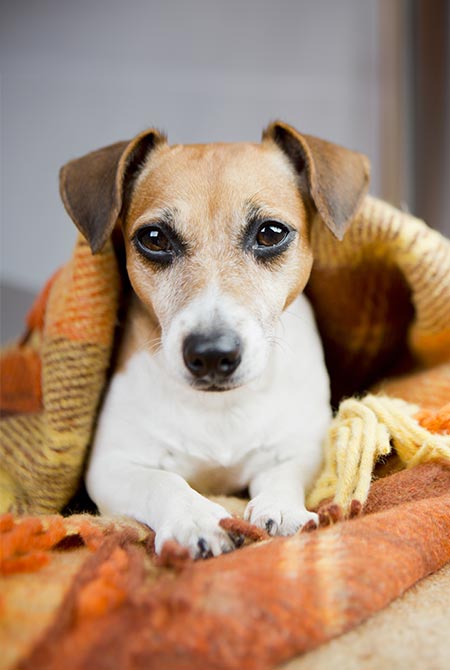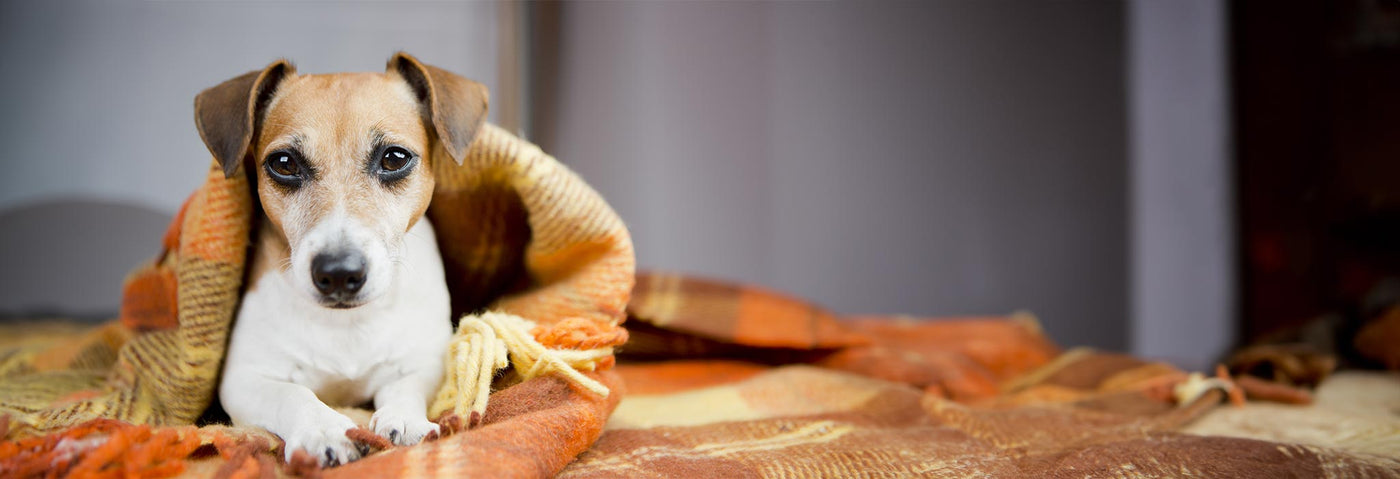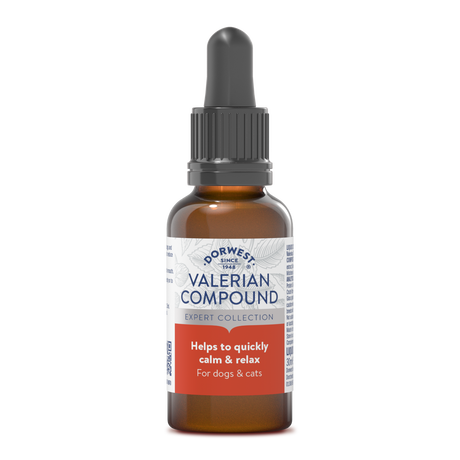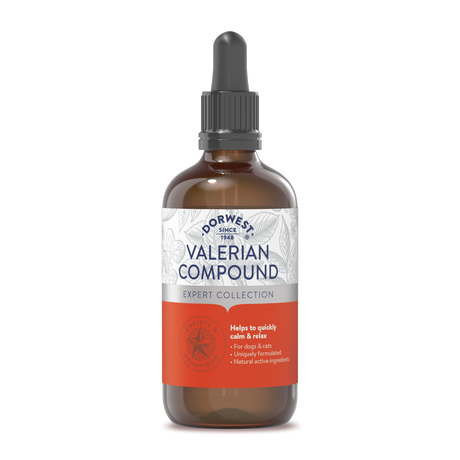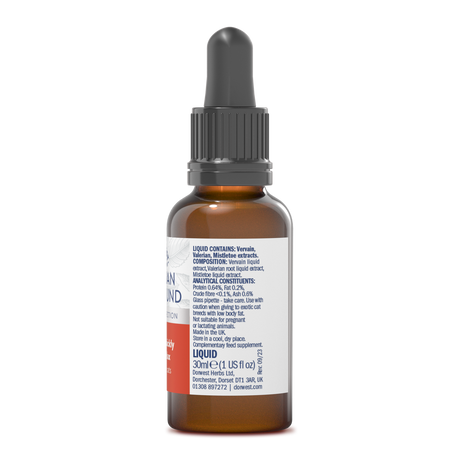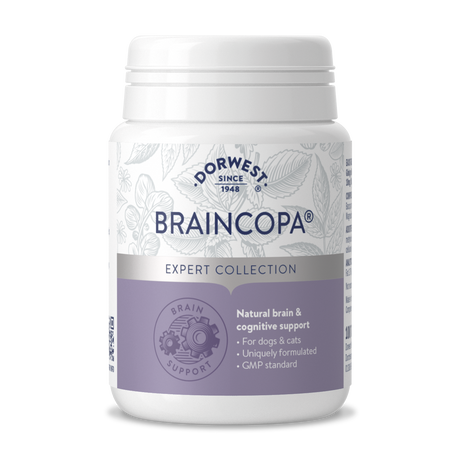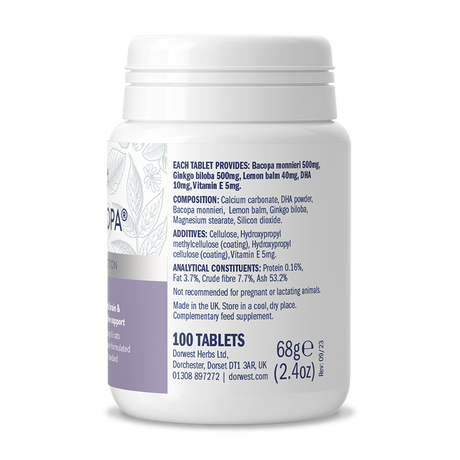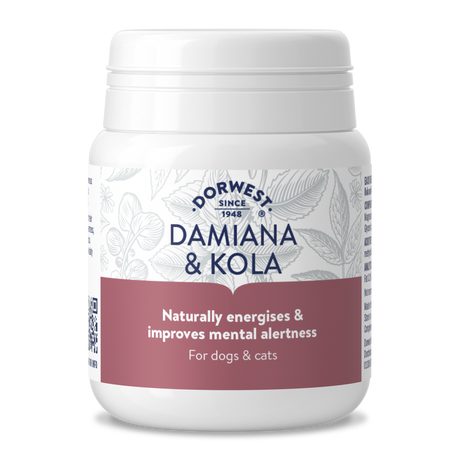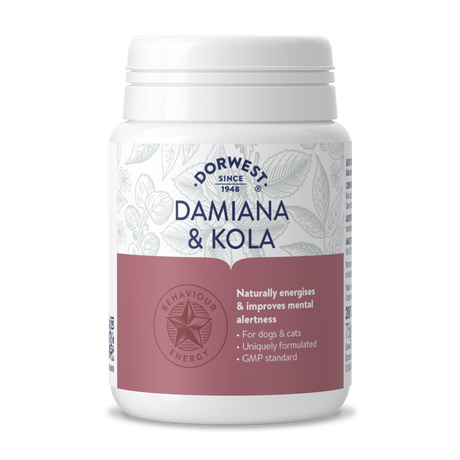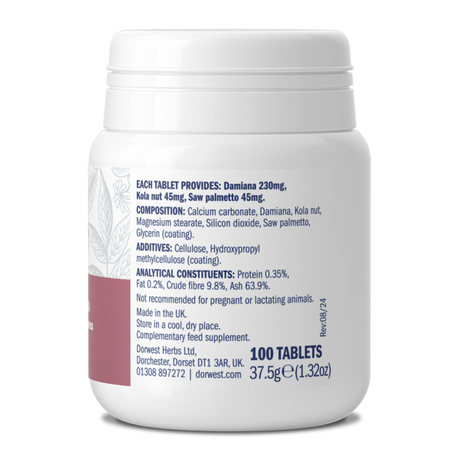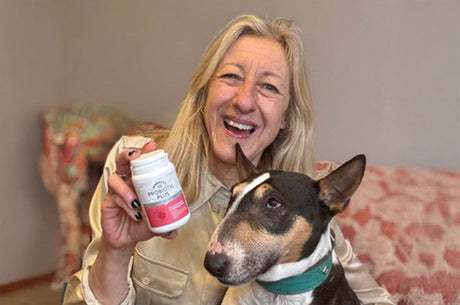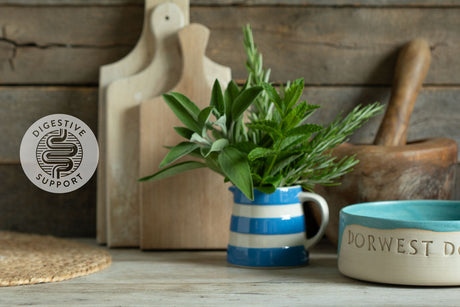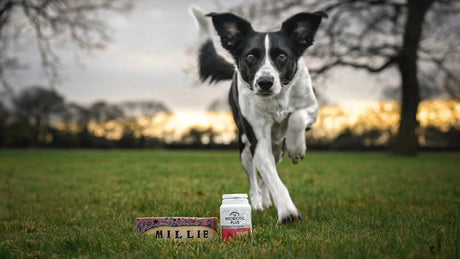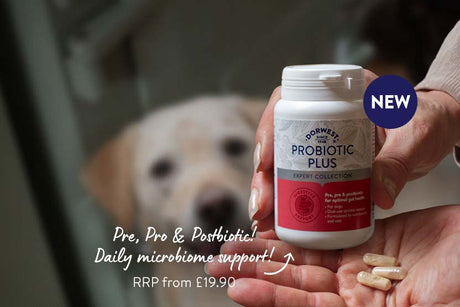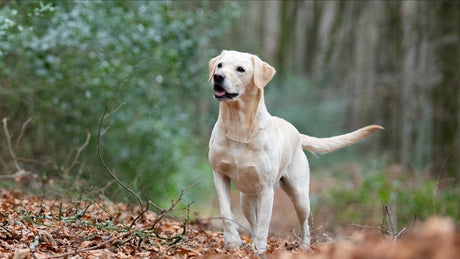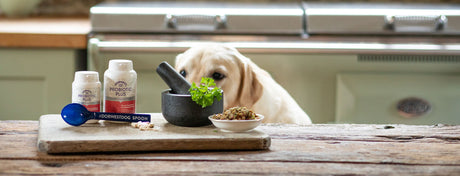Anxious? Fearful? Nervous? Scared or stressed? If you have used any of these words to describe your dog, you have probably witnessed them showing one or more of the dog anxiety behaviours below. Our dogs can get stressed and since we can understand how stress makes us feel, all pet owners should be aware and look out for these behaviours as they can be indicative of stress. Stress is horrible for our pets to endure, and calming supplements can help in a big way.
8 common stress signals:
1. Flattened ears
This is a sure sign of your dog being scared or worried. Some dog’s ears become more erect if they’re uneasy, but many will flatten their ears in attempt to block out noise.
2. Lip licking
Dogs may lick and drool excessively when they’re nervous. Lip licking allows dogs to take in more scent information about their surrounding environment
3. Darting eyes
Stressed or scared dogs may be constantly looking around to try to identify the noise or thing that they’re scared of.
4. Barking/Whining
Vocalisation is normal self-expression whether you’re human or canine. It is common for dogs to whine or bark when they are frightened or feeling uncomfortable.
5. Tail between legs
Dogs may also tuck their tails in and become quite rigid when scared. Valerian Compound will relax your dog whilst keeping them alert.
6. Trembling
If your dog isn’t cold this is also a stress signal in dogs, just as we sometimes shake in scary situations.
7. Panting
Dogs pant when they’re hot to cool themselves down, excited or stressed. So, if your pet is panting even though they haven’t got hot from exercise, they may be having an episode of dog anxiety.
8. Trying to hide
If your dog is trying to huddle in a corner or hide under furniture, this is a clear sign that your dog is both stressed and scared.
There are many reasons why your dog may become stressed or scared such as vet visits, fear of the car or even loud noises such as thunder and fireworks. In all cases, there are plenty of ways you can help settle your dog’s anxiety. For example, if you know that fireworks are going to go off, take your dog on a long walk earlier in the day before fireworks start to tire them out and feed them earlier, saving some tasty treats for later. This will help build a positive association to fireworks noises. Speaking to your vet or an animal behaviourist will be beneficial.
In any stressful situation, we can help! Here's how to help a dog with anxiety and stress:
Our herbal supplements Scullcap & Valerian Tablets and Valerian Compound are the ideal way to manage your dog’s anxiety and noise phobias. These are formulated by experts to reduce anxiety without sedation by lessening activity in the nervous system rather than relaxing muscles. This results in dogs being less concerned about noises or situations that would normally cause fear.
“With the support of natural supplements, a behaviour modification programme can positively help to change our dog’s emotional response to scary stimulus. Punishment should never be used when working with a fearful dog as it can inhibit learning, affect your bond, and increase fear-related or aggressive behaviours.” Caroline Wilkinson, Certified Animal Behaviourist (Barket Place)
Learn more about how natural calming products that can help noise phobic pets and discover the benefits of Valerian for dogs and cats.
If you recognise any of these behaviours and are worried that your pet might have anxiety or a noise phobia, we recommend our Scullcap & Valerian Tablets and Valerian Compound. Perfect to prepare you and your beloved pet, either in advance or on the day of a stressful event.
You can also discuss using our natural calming remedies for dogs with one of our experienced advisors; please get in touch on 01308 897272 or use our contact form. Plus, get free UK delivery on orders over £50.
Please remember, you should always consult a vet if you are concerned about your pet’s health.
